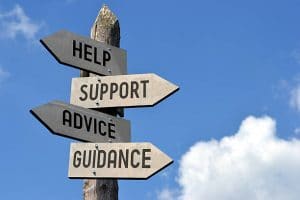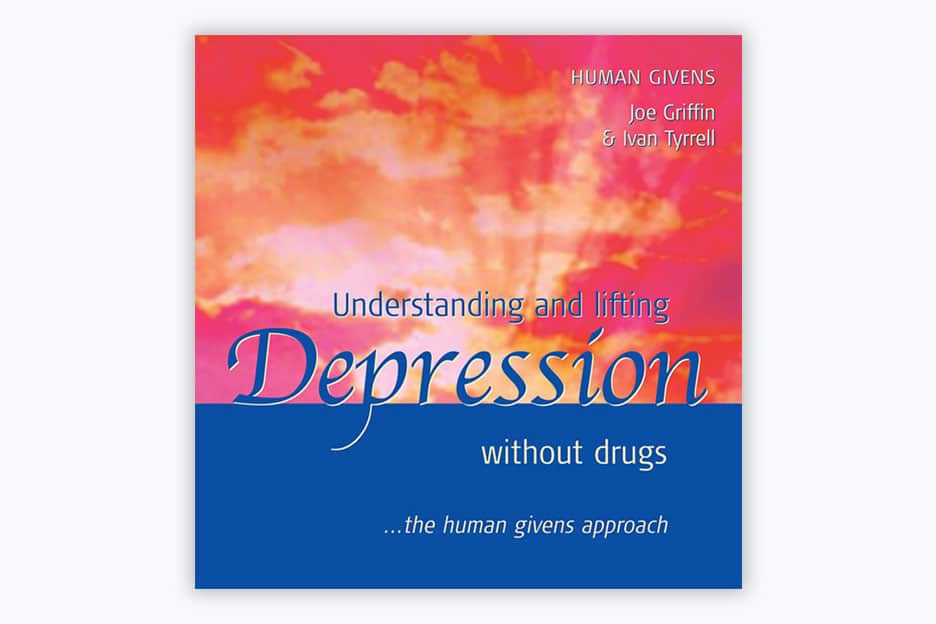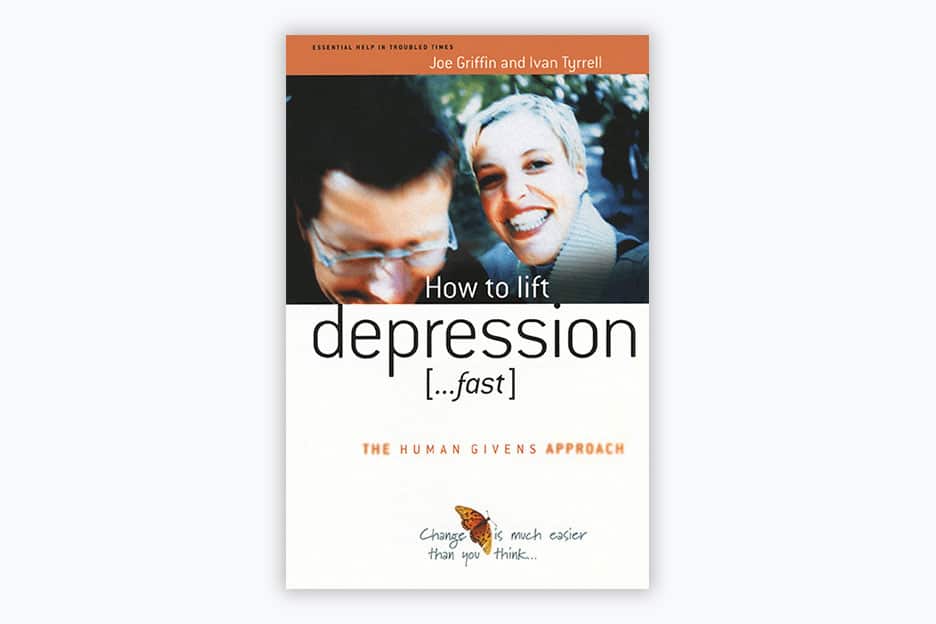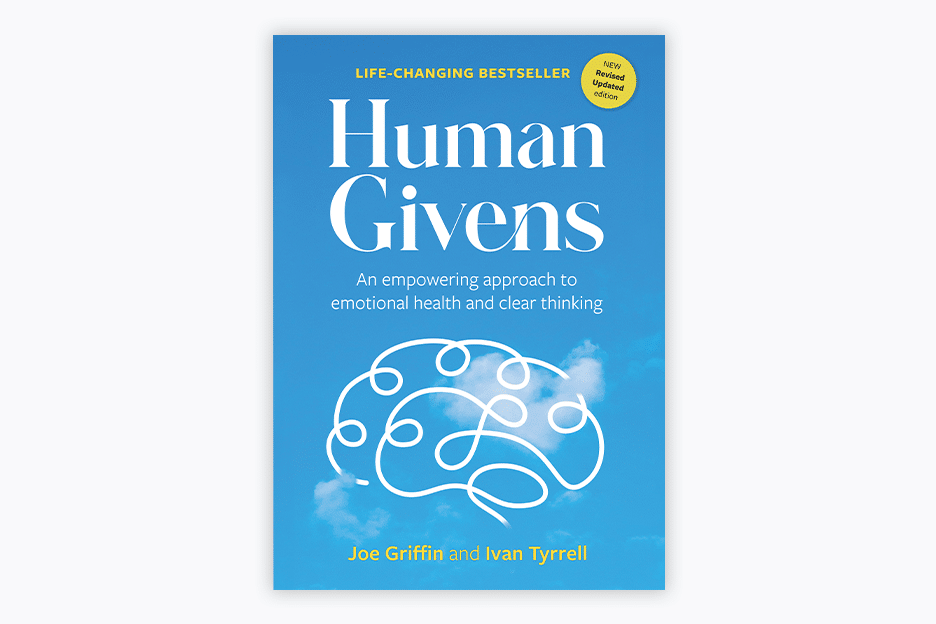Why antidepressants need to be understood

Marion Brown
– with expert Marion Brown
Campaigner and retired HG therapist, Marion Brown, discusses the importance of understanding both the positive and negative effects of antidepressants and the difficulties people can have in withdrawing from them. She also explains how people can be helped to overcome depression using the HG approach, enabling them to move forward quickly with their lives without the need for prescription drugs.
Through her work as a therapist, Marion became very concerned about the difficult experiences she could see people were having with antidepressants, anti-anxiety medications and sedatives taken as prescribed – often with difficult side-effects and withdrawal problems. She now shares what she has learnt to help therapists and people struggling with those complex issues – and she works tirelessly to increase awareness of them.
Although keen to point out that she is not a doctor and that the only true experts on antidepressants are the people who have taken them, Marion has developed an in-depth knowledge of antidepressants and their side-effects through her extensive work with clients and support groups. Here are just a few of the insights she shared with us on a recent podcast recording – you can listen to the full episode here.
Greater awareness, recognition and acknowledgement are needed of the possible side-effects of antidepressants
Marion acknowledges that some people do have positive experiences of antidepressants and find them helpful and that she inevitably sees “the worst side.” But she feels the extent and range of possible antidepressant side-effects need to be better understood and communicated – to patients, the people around them and the medical profession itself.

“We also need to understand that some people cannot metabolise the drugs and those people become very ill very quickly,” Marion says. She is keen to raise awareness of an increased potential for suicidal ideation, a possible serious side-effect of antidepressants that can occur two to three weeks after treatment starts. Marion’s patients have told her this “medicated suicidalness” is different from other feelings they have experienced. Medical professionals do not always recognise it as a side-effect, meaning patients are sometimes prescribed higher doses of antidepressants or additional psychiatric drugs, such as anti-psychotic drugs, with further negative consequences.
Marion also wants to highlight akathisia – severe agitation, a sensation of the skin crawling, and an inability to keep still – as a possible side-effect that people need to be better prepared for and educated about. She recommends Akathisia 101, a free one-hour course, for anyone (including doctors, therapists, patients and their relatives) who would like to better understand, identify and respond to akathisia.
Marion points out that some relatively common side-effects of antidepressants, including nausea, sexual dysfunction, digestive problems and feeling “emotionally numb”, may exacerbate patients’ problems. “If people are having relationship problems and they get put on antidepressants, the side-effects can make things worse,” she says. Fatigue, another common side-effect, may prevent people from taking alternative actions that might have helped to lift their depression.
People need to know there IS an alternative
People should visit their GP if they are struggling with low mood, Marion says. They may have a medical condition, such as a problem with their thyroid function, that is contributing to their experience and needs medical treatment.
But she advises that they should visit an effective therapist before deciding to take antidepressants and she has created an infographic, which reflects a pattern she has seen repeatedly in patients’ experiences. It shows how effective therapy can help people to move forward more quickly with their lives and to avoid the complications that psychiatric medication can bring.
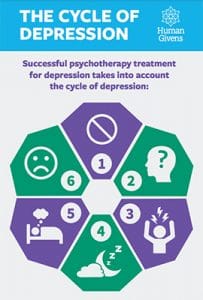
Marion explains how, when our emotional needs are not being met healthily and in balance, our worries can begin to overwhelm us. We are likely to feel anxious or angry, with thinking becoming catastrophic, irrational or “black-and-white.” This increased emotional arousal leads to intense, prolonged dreaming every night, which disturbs our sleep patterns, preventing us from getting enough restful, restorative sleep. We are then likely to wake up feeling exhausted and lacking in motivation, resulting in more emotional needs not being met, and the cycle begins again.
Marion describes how a therapist using the HG approach will help a client to unburden, to talk about what is going on for them and to be listened to. In the very first session, the therapist will help their client to explore which emotional needs are not being met healthily in their lives. They will teach effective techniques, such as 7-11 breathing, to help them take back some control, stimulate the relaxation response and restore rational thinking. They will also use guided imagery to help their client access the REM state and they will help them to use their innate resources, including memory, the observing self, pattern-matching and imagination to explore and rehearse different ways forward.
Marion finds people often leave their first therapy session with a renewed sense of hope and control. “When people have experienced feeling really relaxed, even for ten minutes, they go out feeling different … something has happened, they’re not quite sure what it is,” she says.
People who want to stop taking antidepressants need better guidance and support
Marion points out that although not “addictive” in the sense that they cause cravings, antidepressants are dependence-forming because our bodies adapt to working with them. “If we try to come off, there are very powerful, physiological, homeostatic re-adaptations that the body must learn to cope with,” she says.
In Marion’s opinion, the current NICE guidelines do not recommend a slow enough reduction in medication, and more information, support and advice are needed for people wanting to stop taking antidepressant medication.
It is crucial that people who want to stop taking antidepressants reduce their dosage very slowly and gradually, Marion stresses. A cold turkey approach can be very dangerous, she warns. Everyone is different and each person needs to find out what works for them. It is likely that the longer someone has been taking antidepressants, the more slowly they will need to reduce their dose. Pill sizes can make this difficult, but some antidepressants are available in liquid forms and tapering strips have been developed in gradually reducing doses. Marion recommends Let’s Talk Withdrawal for more advice and information about this, together with these resources:
- Rxisk – notes on antidepressant withdrawal to take to your therapist
- Harm reduction guide to coming off psychiatric drugs and withdrawal
- Inner Compass
- Surviving antidepressants
“People who have … come off and got back to getting their needs met in balance again can do really really well,” Marion says. “Even if people have got quite far down the route (of medication), we can help them and they can be supported to come out,” she says.
Marion is working to make the experiential information patients have shared available to the medical profession. She provides frequent updates of her work and news relating to prescription medication in our newsletter – you can subscribe here. Marion also spoke recently at the HGI’s highly-reviewed online Lifting Depression Summit and featured in the YouTube series, Vital Conversations in Mental Health.
Further help and information
- Online workshop – Antidepressants: what we all need to know
- Human Givens depression resources
- The IN8 cards and the human givens approach – notes by Marion Brown
- From the HGI archive – My experience with antidepressants case history
- Information about Serotonin Syndrome
- TED talk “One more reason to get a good night’s sleep” – Jeff Illiff
- Recovery Road website – antidepressant and benzodiazepine withdrawal support
- A new website – Antidepressant Risks
- Baylissa website
- From the HGI archive: The alarming hijacking of the BioPsychoSocial model
- Book: ‘Recovery and Renewal’ by Baylissa Frederick
- Book: ‘The Straight-talking Introduction to Psychiatric Drugs’ by Joanna Moncrieff
- Book: ‘The Straight-talking Introduction to Psychiatric Diagnosis’ by Lucy Johnstone
- Book: ‘The Pill that steals lives’ by Katinka Blackford Newman – you can read Marion’s review of this book here
- The Pill That Steals Lives – A Family’s Journey to Discover the Side Effects of Antidepressants on Vimeo
- Article: Why professional must admit to the dangers of psychiatric drugs
- Articles by Marion on welldoing.org
Listen to the Podcast
Why antidepressants need to be understood
Marion Brown was a human givens psychotherapist in private practice for 7 years and through her work, became very concerned about the many difficult experiences she could see people were having with antidepressants, anti-anxiety medications and sedatives taken as prescribed – often with difficult side effects and withdrawal problems. Marion now shares what she has learnt, to help therapists and people struggling with those complex issues – and she works tirelessly to increase awareness of them …
‘Ask The Expert’ podcast series
Listen to the full series and more on your favourite podcast player! Available on Apple Podcasts, Spotify and Soundcloud.

